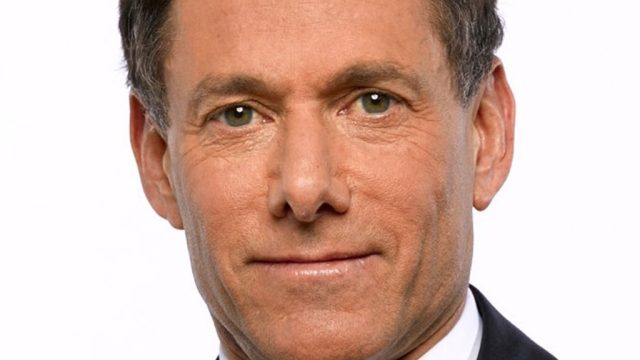The Most Exciting Company You've Never Heard of
Plus: more great leadership advice—straight from America’s fittest CEO

The Fast Track is a column focused on leadership and healthy living by Strauss Zelnick, the co-founder of ZMC, a leading media-focused investment firm; and the chairman and CEO of Take-Two Interactive Software, one of the world's largest video game companies. Zelnick is also an avid participant in #TheProgram, a New York-based fitness group. If you have any questions for him, Tweet them at @BestLifeOnline—or send us a message on Facebook—using the hashtag #AskStrauss.
It's 2017. What's the most exciting company we've never heard of?
The company is called Ready, the first super-easy and effective programming tool for robots. (Full disclosure: my family and I are investors.) Ready is at the forefront of the explosion in personal robotics. This year, billions of consumers will buy robots for their homes. Until now, programming those devices has been complicated and difficult—unless you happen to have a degree from MIT. And hundreds of thousands of consumers are already using it.
What's the most dumbest mistake you see bosses doing these days?
Bossing people around. Leadership is based on expertise and execution, not on authority. The best managers are player-coaches: your job is to serve your colleagues, to help when you're needed, and to get out of the way when you're not. You are not the all-purpose, all-knowing problem solver; you are not the decider-in-chief. This requires discipline. It's a lot easier to answer a question and move on than it is to say, "I'm happy to help out. Tell me more." And then, "what options do we have?" And finally, "what do you recommend?"
If someone shows up in my office with an issue and hasn't thought out a possible path to a solution, I'm being asked to do that person's job. That's not fair to me or to my colleague. At the end of the day, of course, sometimes the person in the corner office has to make the hard call, but that's a last resort. If you've set the right culture, collectively embarked on a course of action and have hired the right team, leadership can often be subtle and generous and more or less ego-free. As my friend David Zinczenko says, "If you're the smartest guy in the room, you're in the wrong room."
Who is the person in life who taught you the most as a leader—and what did you learn?
When I was in graduate school, I had the undoubtedly annoying habit of asking visiting CEOs what they advised to those just starting out their careers. And every one basically gave one or more of the following three answers:
1. Listen. Most people confuse talking with doing. If you listen first, and carefully, and with empathy, you'll be amazed at what you'll learn. And in learning you just might avoid dumb mistakes. Over time, you'll develop a reputation as a thoughtful—and kind—leader.
2. Work hard. When you're just starting out, odds are you're sitting next to people who have similar educational backgrounds with similar work experience (if any). Said another way, you don't know anything yet. How, then, will you distinguish yourself? By working harder than anyone else. Be the first to raise your hand to help out; as often as you can, say "yes." Specifically, be at work before your boss and stay later. Over time, experience and a reputation will mitigate at least some of the brute force of hours. Until then: suit up, show up—and smile.
3. Never compromise your integrity. At the end of the day, it's all you have.
As a businessman, what's the one thing you'd really like to get better at?
The intersection of data and decision-making. Like many companies, we have enormous amounts of consumer data and we are getting better and better at analytics. I'd like to bring that information into the C-suite and use it to serve our customers better.
When you're hiring people, do you personally check their digital footprint for warning signs? And do you have any advice to people hunting for a new gig?
Emphatically, yes. We do thorough background research, specifically including social media and spot checks of the most arcane and even irrelevant things listed on an applicant's résumé. A fabrication or even an exaggeration may ruin your chances at getting a job—or could cause you to lose one you have. And make sure you proactively correct any misapprehensions. Oddly, if you Google me you may come up with references to my having worked at Goldman Sachs, Verizon and DuPont (as the CEO, no less). I've never been employed at any of the three—and I make sure to tell folks that if we're talking about my background.
What is the one interview question you always ask job applicants?
It may not be original, but I always ask: "What was your biggest failure?"
The worst answer is something to the effect of: "I'm such a perfectionist. You just can't get me out of the office. I work and work and work—to a fault. My failure is that I need to add more balance to my life—but I just can't seem to do it!"
The best answer falls into the category of: "Here's something that I actually did poorly—and how I sought to fix it and learn from it. I'm looking for honesty, humility and a willingness to take responsibility in adversity."
Oh—and I'm also trying not to hire douchebags.
What's the best book you've read lately and why?
The Boys in the Boat, by Daniel James Brown. It's the story of the 1936 U.S. men's Olympic rowing team. A great non-fiction story and a (perhaps unintended) parable in leadership, too.
Are you a big supporter of certain kinds of workspaces? Do you prefer open-air spaces or private offices?
It all depends on your culture and your business model. For a trading desk, it's pretty clear that an open plan is the only way to go. For an early stage company where loads of collaboration and rapid decision-making is crucial, an open plan can work well, but private space for meetings and private conversations is also important.
And for certain companies (like ours) a mixture of open space and private offices seems to be most effective. What I do not think works is telecommuting or shared common desks with lockers for your belongings. Humans are territorial (why do you usually sit at the same place at the table every night?), and having a place to call your own enhances both the work experience and output.
For more amazing advice for living smarter, looking better, and feeling younger, follow us on Facebook now!





















